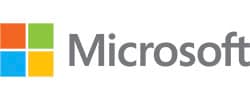August 06, 2024
Small to Midsized Businesses Level Up Technology With Third-Party Services
Delegating some IT services to partners allows small businesses to focus on strategic technology initiatives that drive business objectives while reducing overall security risk.
In today’s rapidly evolving technology landscape, small to midsized businesses face many of the same technological challenges as their larger counterparts, but they’re forced to do so with smaller budgets and fewer resources. SMBs must fend off the same adversaries seeking to compromise their data and interrupt their business continuity. They must do this while simultaneously seeking to implement innovative forms of technology that will allow them to remain competitive, control costs and drive new business. So, where can SMB owners and IT leaders turn to fill the gaps they inevitably encounter? Third-party service providers are becoming an integral part of the solution. However, according to McKinsey, providers must keep in mind the particular challenges that set the SMB market apart from the enterprise segment: “Tech suppliers cannot simply apply their enterprise portfolio and channel strategy to SMBs and expect it to work. To succeed, they must understand the SMBs’ unique buying preferences and unmet needs, and tailor their products and commercial approaches accordingly.”
Find out how CDW can help organizations of every size achieve optimal results.
In today’s rapidly evolving technology landscape, small to midsized businesses face many of the same technological challenges as their larger counterparts, but they’re forced to do so with smaller budgets and fewer resources. SMBs must fend off the same adversaries seeking to compromise their data and interrupt their business continuity. They must do this while simultaneously seeking to implement innovative forms of technology that will allow them to remain competitive, control costs and drive new business. So, where can SMB owners and IT leaders turn to fill the gaps they inevitably encounter? Third-party service providers are becoming an integral part of the solution. However, according to McKinsey, providers must keep in mind the particular challenges that set the SMB market apart from the enterprise segment: “Tech suppliers cannot simply apply their enterprise portfolio and channel strategy to SMBs and expect it to work. To succeed, they must understand the SMBs’ unique buying preferences and unmet needs, and tailor their products and commercial approaches accordingly.”
Find out how CDW can help organizations
of every size achieve optimal results.

Collectively, SMBs play an enormous role in the U.S. economy, constituting 46% of private sector employment and creating 55% of net jobs between 2013 and 2023. Yet they are also vulnerable, finding it harder to recover from major events such as the pandemic or a ransomware attack. Many SMBs struggle daily to optimize their technology environments due to limited budgets, time or internal expertise.
Companies need scalable, rightsized solutions and services tailored to their market. Effective cybersecurity and modern infrastructure are crucial for growth, requiring cost-effective strategies and smart investments. This is a primary reason why a growing number of SMBs invest in third-party technology services.
Many leaders also face budget constraints that prevent hiring technology professionals for key areas such as networking, data storage, backup, disaster recovery and cybersecurity. Yet leaders typically do not have the time to manage these functions effectively or to explore new capabilities, such as automation and artificial intelligence (AI).
While many SMBs outsource their IT help desk and break/fix services, third-party services have evolved to deliver many types of support tailored for smaller organizations, including device configuration, software licensing, cloud migration support and disaster recovery planning.
52%
The percentage of SMBs that outsource security to managed service providers or channel providers
Source: blogs.opentext.com, “OpenText Cybersecurity 2023 Global Ransomware Survey: The Risk Perception Gap,” Nov. 15, 2023
Security services, such as environmental assessments and penetration tests, provide valuable insight into potential vulnerabilities and risk management strategies. Often, engaging a partner is more cost-effective and may deliver superior results compared with developing internal expertise.
Some SMBs look to local providers for IT operations support. However, businesses with remote employees or those serving multiple regions may need the resources of a larger team that can ensure consistent, centralized service. Effective partners understand SMBs’ unique needs and can help them develop strategies suited to their capabilities and budgets. By shouldering some of the crucial work of IT optimization, partners enable SMBs to focus on their core mission, knowing they have the right tools and protections in place.
Collectively, SMBs play an enormous role in the U.S. economy, constituting 46% of private sector employment and creating 55% of net jobs between 2013 and 2023. Yet they are also vulnerable, finding it harder to recover from major events such as the pandemic or a ransomware attack. Many SMBs struggle daily to optimize their technology environments due to limited budgets, time or internal expertise.
Companies need scalable, rightsized solutions and services tailored to their market. Effective cybersecurity and modern infrastructure are crucial for growth, requiring cost-effective strategies and smart investments. This is a primary reason why a growing number of SMBs invest in third-party technology services.
Many leaders also face budget constraints that prevent hiring technology professionals for key areas such as networking, data storage, backup, disaster recovery and cybersecurity. Yet leaders typically do not have the time to manage these functions effectively or to explore new capabilities, such as automation and artificial intelligence (AI).
While many SMBs outsource their IT help desk and break/fix services, third-party services have evolved to deliver many types of support tailored for smaller organizations, including device configuration, software licensing, cloud migration support and disaster recovery planning. Security services, such as environmental assessments and penetration tests, provide valuable insight into potential vulnerabilities and risk management strategies. Often, engaging a partner is more cost-effective and may deliver superior results compared with developing internal expertise.
Some SMBs look to local providers for IT operations support. However, businesses with remote employees or those serving multiple regions may need the resources of a larger team that can ensure consistent, centralized service. Effective partners understand SMBs’ unique needs and can help them develop strategies suited to their capabilities and budgets. By shouldering some of the crucial work of IT optimization, partners enable SMBs to focus on their core mission, knowing they have the right tools and protections in place.
52%
The percentage of SMBs that outsource security to managed service providers or channel providers
Source: blogs.opentext.com, “OpenText Cybersecurity 2023 Global Ransomware Survey: The Risk Perception Gap,” Nov. 15, 2023
Small Business Cybersecurity by the Numbers
47%
The percentage of SMB leaders reporting a recent cybersecurity breach resulting from compromised passwords
Source: LastPass, “SMB Cybersecurity Disconnect,” April 2024
90%
The percentage of midsized business owners who say cybersecurity is a threat to their business
Source: Bank of America, “2024 Business Owner Report,” March 2024
82%
The percentage of SMB leaders whose cybersecurity budgets are increasing year over year
Source: LastPass, “SMB Cybersecurity Disconnect,” April 2024
Small Business Cybersecurity by the Numbers
47%
The percentage of SMB leaders reporting a recent cybersecurity breach resulting from compromised passwords
Source: LastPass, “SMB Cybersecurity Disconnect,” April 2024
90%
The percentage of midsized business owners who say cybersecurity is a threat to their business
Source: Bank of America, “2024 Business Owner Report,” March 2024
82%
The percentage of SMB leaders whose cybersecurity budgets are increasing year over year
Source: LastPass, “SMB Cybersecurity Disconnect,” April 2024
SMBs need solutions that reduce IT workloads and simplify overall management. A trusted partner can help businesses ensure they are spending IT dollars wisely, achieving the most impact for the lowest cost while supporting business objectives. SMBs can start by ensuring they have a solid foundation in these key areas.
CYBERSECURITY: SMBs often find they have multiple security tools and no one to manage them holistically. Still, a proactive, layered defense is crucial. A penetration test is an excellent way to identify gaps and gain recommendations about how to improve security posture through a strategic combination of solutions and services.
CLOUD ARCHITECTURE: Cloud solutions can reduce costs while providing agility to scale and flexibility to accommodate seasonal fluctuations. However, businesses must be strategic about cloud investments to keep costs in check. They also need visibility into employees’ Software as a Service (SaaS) tools to ensure these comply with security policies and procedures.
DATA MANAGEMENT: Data can be a powerful asset or a potential liability, depending on how effectively businesses manage, secure and leverage it. Businesses of all sizes should address data governance to ensure they maintain data integrity while also positioning themselves to take advantage of emerging capabilities such as automation and AI.
SOFTWARE OPTIMIZATION: Servers, storage and networking are the backbone of IT capabilities. Rightsizing these solutions to enable growth without incurring technical debt requires a holistic understanding of the environment and a solid grasp of potential solutions. Partners can help SMBs assess their options so they derive the best results from these investments.
DEVICE MANAGEMENT: SMBs managing a large number of devices may use asset management solutions or services to simplify the work of procurement, provisioning and configuration. For example, CDW’s Device as a Service provides supported devices with full lifecycle management to ensure employees have the tools they need to stay productive.
Click Below to Continue Reading
CDW Partner Offerings for Small Businesses
CDW’s experts have extensive experience helping businesses of all sizes resolve technical challenges, optimize their IT environments and achieve sustainable results. Our solutions and services deliver enterprise-level expertise scaled to the unique needs of small to midsized businesses. These are a few of our services for SMBs that want to explore new areas of partner expertise.
Cloud solutions increase agility but can easily sprawl. Gain greater visibility and increase cloud ROI with CDW’s Inscape services, designed to simplify management, improve security and reduce costs.
CDW Technology Support for Cisco and Microsoft provides a single point of contact and timely resolution. The outcome is less downtime, so that staff can get back to business.
CDW’s Microsoft 365 Copilot workshop helps customers understand the generative AI capabilities of Microsoft’s AI assistant and develop a plan to leverage them effectively to increase employees’ productivity.
CDW’s Managed Services for Cisco Meraki provides 24/7/365 device monitoring, maintenance and management, with remote troubleshooting, configuration maintenance, and software and license management to ensure the infrastructure continuously operates within a business’s expectations.
Establishing a relationship with a third-party partner brings distinct value at various phases in a company’s growth, and that relationship may evolve as needs change. SMBs benefit from well-rounded partners capable of supporting the company at every stage, from providing guidance on foundational technologies that can support future growth to controlling technical debt as operations grow more complex. Often, managed services for the SMB market focus on core areas such as cybersecurity and IT support. Yet the right provider will become a true partner, helping to resolve problems and position the business for success.
That starts by understanding SMBs’ day-to-day obstacles and their environments. Based on these insights, experts can help businesses identify their priorities and build a roadmap to pursue short- and long-term objectives. By asking the right questions and listening carefully, partners can help SMBs chart the best path forward, whether that means investing in a specific solution, engaging third-party services or simply making more effective use of existing tools.
CYBERSECURITY: Research suggests that while SMBs take cybersecurity threats seriously, many doubt they would be targeted. However, hackers often target SMBs due to their lack of dedicated security teams and weaker defenses. SMBs possess valuable data and can serve as gateways to larger partners.
Developing internal cybersecurity capabilities sufficient to protect against modern threats is often not feasible for SMBs. As a result, many supplement their resources with third-party services ranging from embedded staffing to incident response support. Engaging a third-party assessment can help SMB leaders understand their security posture; identify threats and vulnerabilities; and evaluate the protection status of devices, SaaS applications and networks. These insights can drive informed decisions about which external security services would be most beneficial.
Click Below to Continue Reading
RENEWAL MANAGEMENT: Software consumes roughly one-quarter of technology spending for many SMBs and up to one-third for businesses with between 500 and 1,000 employees. As businesses grow, solutions often proliferate, leading to duplication, lack of visibility and security gaps. Expert partners can help SMBs control their software environments and reduce costs. For example, CDW’s Renewal Management assists SMBs in managing software licensing, SaaS contracts, and software and hardware maintenance. Starting with an inventory baseline, this service enables seamless renewals and significant savings through multiyear discounts, master policies, co-term cancellations and tailored service-level agreements. With proper planning, SMBs can make upgrades more strategically, anticipate contract renewals, and ensure they are deriving the most value from hardware and software spending.
DEVICE MANAGEMENT: As businesses grow, device management and protection can become burdensome, taking away from the time leaders need to focus on other priorities. Provisioning is also complex, particularly for SMBs managing remote and hybrid workers in multiple locations. The logistics of imaging and shipping devices and assisting employees with setup can be overly time-consuming for SMBs that support a workforce of hundreds. CDW can help SMBs leverage tools designed to modernize and simplify device deployment, allowing for faster deployment, easier monitoring and management, and a better experience for end users. We also offer a range of configuration services to support the essential tasks businesses need to ensure devices are secure, easy to manage and ready to enable employee productivity.
STAFF AUGMENTATION: Staff augmentation — rounding out an internal IT or security team with third-party resources — can be a flexible, cost-effective way to target specific skills gaps without making an overly broad investment. In 2023, 44% of SMBs said they planned to expand their security teams; however, the limited supply of qualified IT professionals can make it difficult to attract and retain talent. Staff augmentation allows SMBs to acquire high-level expertise for specific projects, such as a cloud migration or network upgrade, as well as ongoing support to supplement internal teams. For example, CDW’s IT and security experts can serve as an extension of an SMB’s team within its own environment, providing the best of external expertise and internal familiarity.
IT SUPPORT: Many SMBs outsource help desk services and break/fix support to ensure they can continue to serve customers with the least amount of downtime and business disruption. Such services can enable businesses to get help more quickly, obtain coverage for accidental damage to equipment, have repairs performed onsite and receive help from experts who are familiar with their environments. Most SMBs use a variety of vendor products and may also benefit from having a single point of contact that can handle technology from multiple vendors, streamlining support and consolidating coverage under unified coverage plans. CDW’s IT maintenance and support services are custom-designed to meet the needs of each customer.
Strategic outcomes should drive IT investments. CDW defines these through ICARE: innovation, cost management, agility, risk mitigation and experience.
Innovation and Agility: Technology can enable the innovation and agility businesses need to thrive or it can become an impediment, creating technical debt, inefficiency and risk. Solutions that worked for an SMB initially may no longer be suitable as the business grows or pivots. Technology solutions and services should simplify operations and enhance business objectives, especially for SMBs with limited resources. Service providers can support these aims by providing access to scalable and rightsized expertise, allowing SMBs to allocate budgets effectively. Partners also enable SMBs to focus on their core business without being distracted by IT issues and to feel confident the business is proactive, compliant and resilient.
Risk Mitigation: SMBs that fall victim to ransomware and other attacks often struggle to recover from the significant financial costs, business disruption and reputational damage. These costs may include restoring IT systems, recovering data and paying regulatory fines and legal expenses. For many SMBs, the consequences are too steep to overcome. SMBs may also deploy security solutions without realizing they do not integrate effectively, leaving gaps and vulnerabilities.
SMBs can mitigate these risks by developing a cybersecurity strategy tailored to their unique size, environments, resources and threats. An expert partner can help by recommending best practices and offering guidance for a holistic, cost-effective approach.
Click Below to Continue Reading
Cost Optimization: Given limited budgets, SMBs must invest IT dollars wisely. Nearly half (48%) of midsized companies regret IT purchases due to unexpected costs or inadequate vendor support. Despite this, 64% plan to increase their software spending in 2024. To ensure prudent allocation, SMBs should ally with partners attentive to budget constraints and adept at solving problems sustainably and cost-effectively. For example, CDW’s Inscape services help organizations gain better visibility into their cloud services so they can streamline financial management and make smarter investment decisions. IT optimization can help businesses reduce unnecessary spending by increasing efficiency and minimizing burdensome processes.
A Better User Experience: Customers demand seamless interactions with accessible support across various channels. Increasingly, employee expectations are also shaped by consumer experiences. Effective solutions empower SMBs to meet these demands in ways that support business goals through tools such as automation and AI. Taking advantage of these capabilities often involves leveraging data for actionable insights, better decisions, personalized service, automated support and streamlined transactions. Partners play a crucial role in helping SMBs evaluate their readiness for advanced technologies and prepare to leverage them through customer touchpoints to minimize friction and drive meaningful enhancements.
Sean Orquiola
Services Manager, Data Center Solutions






